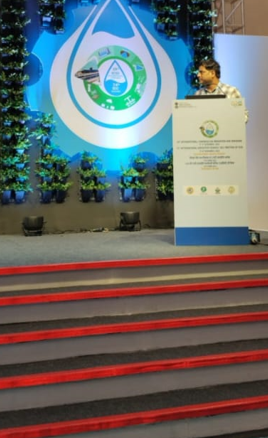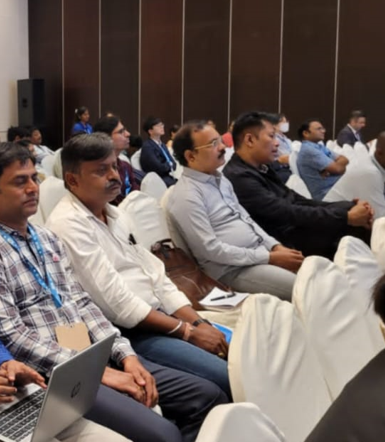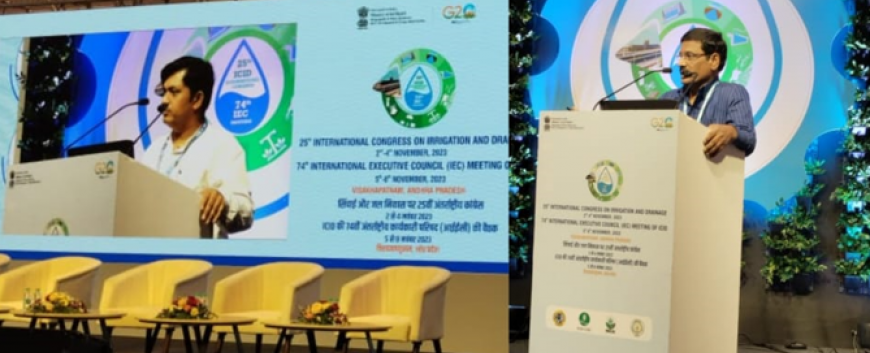Research findings of the Resilience project were presented in the ICID conference
International Commission on Irrigation and drainage organised the 25th ICID International congress from 1-8th November 2023 at Visakhapatnam, Andhra Pradesh, India. In this conference, a side event of Climate action: Technology Interventions an d Capacity Building of Smallholders in irrigated rice-based cropping systems of India was organized on 3rd November. Dr. Rahul Tripathi, Senior Scientist, ICAR-National Rice Research Institute, Cuttack presided over the event. The Resilience project partners of Assam and Odisha presented the intervention and result of the project. The Overall framework, Impacts Climate smart agricultural practices for resilient rice-based cropping systems, Harnessing ICTs to strengthen the adoption of improved water management practices Water resource management: A key Pillar towards developing sustainable and resilient agri-food systems, A road map to sustainability through climate smart water management practices and the Climate resilient farmer led seed systems for self-sufficiency and enhancing resilience are the topics presented by the project partners.
The project partners shared the key research findings on sustainable and climate smart agricultural (CSA) technologies implemented by the Resilience project in vulnerable rice producing areas of Odisha and Assam. The data and information shared during the session was collected over the last 4 years under the guidance of experts from NRRI, OUAT, AAU, MSSRF and IWMI (New Delhi) and NIBIO. The CSA technologies include short duration drought and/or flood tolerant varieties; Direct seed rice (DSR), Alternate wetting and drying (AWD), mechanical transplanting, sensor-based irrigation system, System of Rice Intensification (SRI), location specific diversified cropping systems (rice-legumes/vegetables/oilseeds) and Village Knowledge Centres (VKCs) and ICT based extension tools were presented. The partners were also highlighted how the proven CSA technologies are being upscaled through the Govt. departments and other stakeholders
The recommendations of the session will be useful to practitioners, policy makers, and farmers and provide evidence-based policy inputs to the state climate adaptation cells and other stakeholders.




